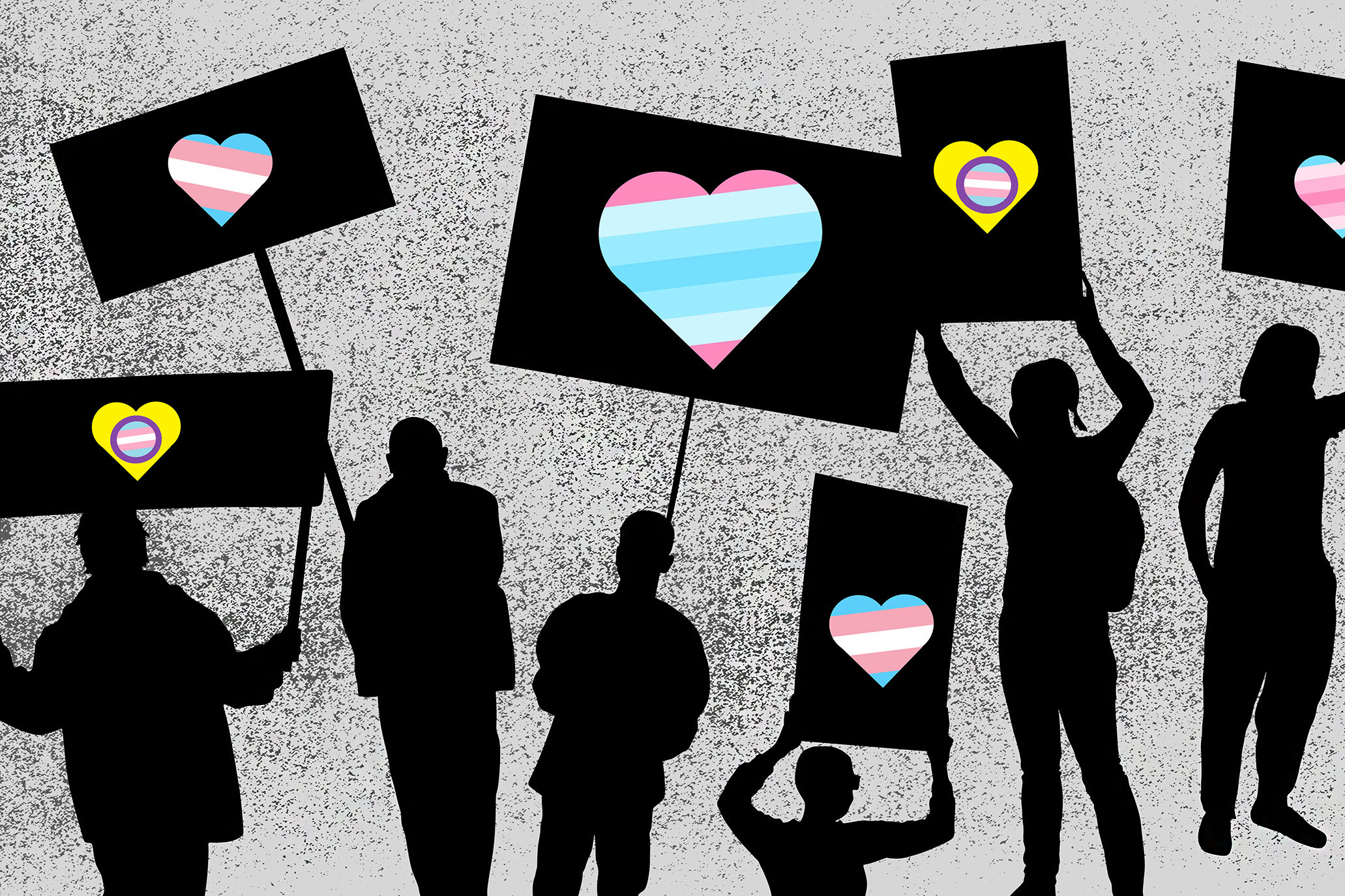Cassandra Chiles Is Fighting For Equality, One Song at a Time

Image: Violeta Alvarez
“I had instances in the past when I was attacked. Especially when I was transitioning,” says Cassandra Chiles. Years back in her native Washington, D.C., a complete stranger pulled Chiles out of her car, beat her, and shoved a cigarette in her ear in front of aghast witnesses. “The police saw it, and they refused to do anything because they knew I was trans.”
Today, the cool and quirky Chiles, a self-proclaimed Devo fanatic and co-founder and guitarist of local band Giant Kitty, relaxes at Black Hole Coffee, kicking back in her Chuck Taylors and shrugging off the attack as yet another minor incident on the road to becoming herself. She takes a swig of coffee. No Doubt’s “I’m Just a Girl” plays in the coffeeshop.
“I lived stealth for a long time,” she says. “After my surgery, I went through great lengths, because I didn’t want anyone to find out. Now I don’t care. I’m proud to be trans.”
It’s her punk rock attitude that makes Chiles part of one of the most compelling musical acts in the city. The band, which Chiles co-founded with her wife and drummer, Trinity Quirk, five years ago, is comprised of three females and a male. “Two of us are trans; one is Muslim. And our bass player, Roger, is a minority, Hispanic. So just getting onstage is almost an act of defiance.”
So is the band’s new album, Rampage. It’s pure, unabashed anti-establishment punk, catchy as hell. With the album's narration recorded in the Wilco Loft—yes, that Wilco’s loft—and music recorded at Sound Arts Studio, produced and released by Roologic Records, Rampage tackles timely issues ranging from whitewashed television news to political complicity to gentrification to sexual assault. The cover art, created by Chiles herself, depicts a single, obliterated lollipop.
“We are political,” Chiles says. “But we also flip-flop into silly songs”—songs about Benadryl, the Geo Metro, and that one friend you have who totally sucks. Their debut album This Stupid Stuff features one of the funniest songs ever written about Keanu Reeves (We’re begging you no more silly accents / But keep wearing black leather jackets).
Miriam Hakim, who writes many of the lyrics alongside Chiles, provides the inimitable, searing vocals on Rampage’s poppy songs, harking back to some of punk’s most beloved sages—ferocious Bikini Kill frontwoman Kathleen Hanna and nerdy Milo of the Descendants. Her ability to slip in clever spoken-word asides seems as much a part of Hakim’s repertoire as her unique lisp.
“We’re hoping this album will be our calling card,” Chiles says. But the music industry is a competitive business, and not always welcoming. “No matter what anybody says,” she says, “it’s still populated by white cis males.”
In January 2017, Giant Kitty received hate messages about Hakim’s Muslim heritage following the band’s announcement of a benefit show for the ACLU (she's Syrian-American). A month later, the band dropped out of Houston’s Whatever Fest after one of the event’s organizers wrote a transphobic Facebook post about a random person he saw wearing a dress in a Las Vegas airport. Other acts followed suit.
“It made me realize I wasn’t giving back enough,” Chiles says. She now volunteers with Hatch Youth, a program that empowers Houston lesbian, gay, bisexual, queer, transgender, questioning, intersexual, asexual, and allied youths ages 13 to 20, at the Montrose Center. “Being a teenager is tough enough as it is,” says Chiles. “I tried to come out when I was 15, and it was a disaster.”
The National Center for Transgender Equality reports that 78 percent of trans students have been harassed or assaulted. Since 2013, more than 102 transgender Americans have been victims of fatal violence, according to the Human Rights Campaign. And 41 percent of the country’s trans population will attempt suicide at least once in their life, according to the American Foundation for Suicide Prevention.
“I can’t sit around thinking about if someone is going to shoot me or stab me,” says Chiles. “I’m too far along with this, from trying to kill myself at age 16, with scars on my wrists, to figuring out who I was and getting the love and support from my family and friends.”
Chiles knew from an early age “what was up,” as she describes it. Her parents thought she was gay, but when she found an autobiography of professional tennis player Renée Richards, she recalls, “I finally figured out what I was, what was going on.”
Before undergoing gender-reassignment surgery at the age of 29, Chiles had started “living two lives,” she explains. She went to college and started “dressing up,” but decided to put away what she thought were childish impulses and get married. She grew a beard, gained weight, tried to “man up.” She had a daughter, who is now out of college herself. But then it all fell apart. “Emotionally, I just couldn’t do it anymore,” Chiles says. “I figured I’d rather die than not be who I really am.”
After her surgery and a divorce, Chiles went in search of an identity beyond gender. “A lot of people don’t talk about what happens after they transition, and they go, Welp, now what do I do? I’ve spent this whole time, my whole life, trying to figure out my gender identity, but who am I really?”
A week after our chat at Black Hole, Chiles is tuning her guitar in a practice space off the Gulf Freeway, decorated with Giant Kitty show flyers she’s designed, all which feature cats and kittens in various shapes and sizes. One lurks underwater like a shark, ready to chomp a blonde swimmer’s mid-section.
Amps are warmed. Cords plugged in. Mics checked. Beneath Chiles, a board of pedals flickers, all red lights and shiny metal knobs that, as the band kicks into gear, make her guitar growl and talk like an anime character as she plucks at the strings. Hakim howls for only the room to hear.
Chiles had tried to describe it back in the coffee shop, but it’s hard to understand until you witness it firsthand. “The saviors of rock 'n' roll,” she’d said, “just might really be women.”




